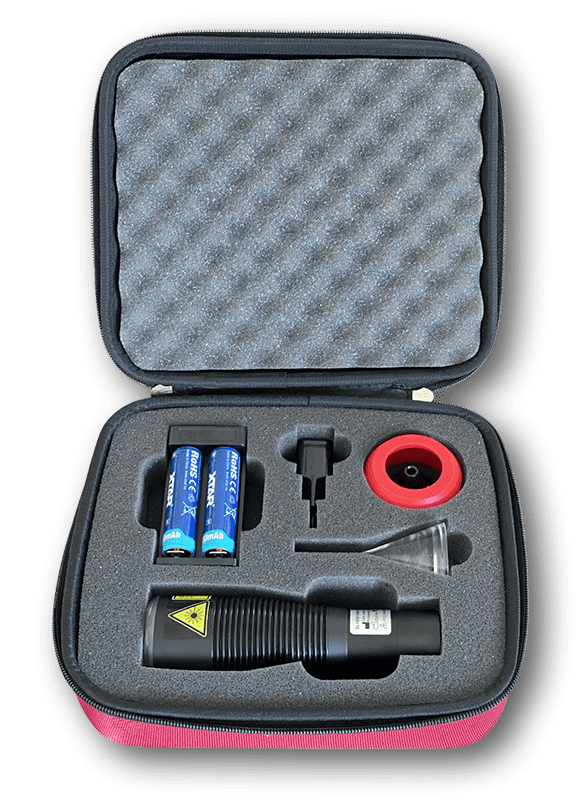Secure Laser Low-Level Laser Therapy (LLLT) can assist to reduce inflammation of the respiratory tract via a variety of mechanisms. Anti-inflammatory effects - LLLT has been proven to decrease inflammation by blocking proinflammatory cytokines and encouraging anti-inflammatory mediators. LLLT is effective in respiratory disorders such as asthma and bronchitis, in which airway inflammation is a major cause of symptoms such as coughing and wheezing.
Bronchodilation LLLT has been found to increase the relaxation of smooth-muscle cells in the airways. This could benefit those suffering from respiratory disorders like COPD as well as asthma where the bronchoconstriction causes difficulty breathing.
Improved Circulation - LLLT boosts vasodilation and microcirculation which results in increased circulation of blood into the lungs and airways. Improved blood flow can transport nutrients and oxygen to tissue that is inflamed, which promotes healing and reduces inflammation.
Improved Immune Function LLLT stimulates the production of cytokines aswell with phagocytosis. Phagocytosis is the procedure that allows immune cells to engulf pathogens. This could be used to enhance the immune system and decrease inflammation in the respiratory tract against respiratory infections.
Reduced Mucus Production- LLLT could help to reduce excessive production of mucus in the airways, by facilitating the removal of mucus and reducing inflammation of the respiratory tract. This is especially beneficial to people suffering from chronic sinusitis and bronchitis in which excess mucus is a source of respiratory symptoms.
Alleviation Allergic reactions- LLLT can be used as an option for treatment of allergic rhinitis. This condition is defined by inflammation of the nasal passages, sinuses, and nasal membranes. LLLT decreases inflammation and regulates immune function, which can help alleviate symptoms of allergies, including nasal obstruction, sneezing or itching.
Safe Laser's low-level therapy offers an non-invasive, drug-free remedy for respiratory inflammation. It eases the symptoms and helps improve functioning of the respiratory system. It's crucial to speak with a medical professional for appropriate diagnosis and treatment recommendations before using LLLT to treat respiratory issues. See the recommended lágylézer for website recommendations including lágylézer kezelés budapest, lágylézer készülék bérlés, lágylézer kezelés árak, gyógyító lézer, safe laser használata, mozgásszervi problémák, lágylézer árak, gyógyító lézer, safe laser bérlés, mozgásszervi problémák and more.

What Is The Safe Laser Low-Level Therapy (Lllt) Help With Nose Problems?
Low-level laser therapy is employed to treat a range of nasal disorders. LLLT aids in reducing nasal inflammation, sinusitis and allergic rhinitis.
LLLT helps relieve nasal pain. It can be used to treat sinusitis, nasal trauma and other conditions.
Enhanced Tissue Repair LLLT accelerates healing and repair of tissues by enhancing cell metabolism. LLLT stimulates faster healing and repair of tissues in nasal injuries or mucosal ulcers.
Improved Blood Circulation – LLLT improves microcirculation by increasing vasodilation. This increases blood flow into the nasal tissues. Improved circulation can be used to deliver oxygen and nutrients into the tissue that is injured or inflamed which aids in healing and decreases inflammation.
Reduced Nasal Congestion - LLLT is shown to reduce nasal congestion via vasodilation and also by reducing nasal mucosal inflammation. This is especially helpful for people with nasal congestion caused by conditions such as allergic rhinitis, and chronic sinusitis.
Treatment of Nasal AllergiesManagement of Nasal Allergies LLLT could help ease the symptoms of nasal allergies by reducing inflammation of nasal passages as well as sinuses. Through modulating immunity and reducing release of histamine and other allergic mediators, LLLT can help provide relief from symptoms such as itching, sneezing and nasal congestion.
Overall, safe Laser low-level laser therapy offers an uninvasive and drug-free solution to managing various nose problems and symptoms like inflammation, pain, and nasal congestion. Before you use LLLT to treat nose problems it is recommended to consult a professional healthcare provider for a thorough diagnosis and suggested treatment. Check out the best safe laser 500 ár for website info including orvosi lézer készülékek, lézeres fájdalomcsillapítás, orvosi lágylézer, orvosi lágylézer, lezer kezeles, mozgásszervi problémák, lágylézer kezelés árak, mozgásszervi problémák, safe laser kezelés budapest, lágylézer készülék bérlés and more.

What Is The Average Time It Will Take For A Laser To Be Effective On Acute Conditions?
The number of sessions needed for an Safe Laser device to take effects on acute ailments may vary based on aspects like the severity of the condition as well as the person's reaction to treatment, as well as the procedure recommended by a health expert. Low-level Laser Therapy (LLLT) can be effective in the treatment of acute ailments. Certain people experience less swelling, pain, and inflammation after only one or two LLLT sessions. For long-lasting and lasting benefits, it is usually recommended to go through several LLLT sessions.
The number of LLLT treatments needed to treat acute ailments can vary based on the condition being treated, the severity of symptoms, and other aspects like the patient's overall health or response to treatment. Health professionals can tailor an appropriate treatment plan for each person. This may include scheduling LLLT several times per each day with different lengths.
It is essential to adhere to the prescribed treatment regimen by a medical professional and be present at all scheduled LLLT sessions to reap the maximum benefits of therapy for acute conditions. Continued treatment can also yield improvements that are cumulative. It is important to speak with your doctor in case you have doubts or questions about the treatment program.